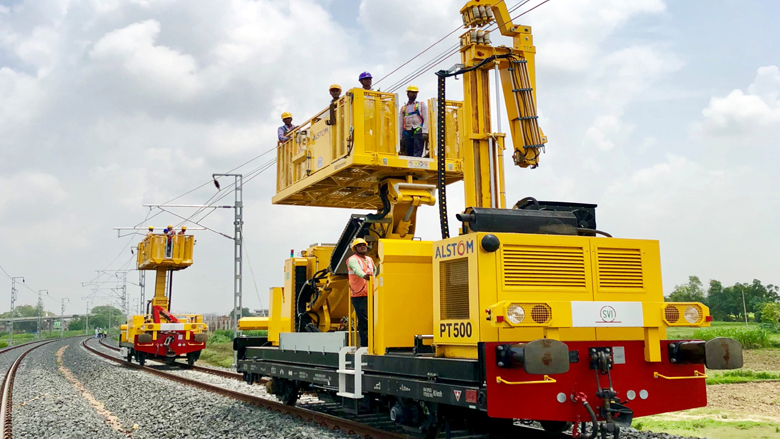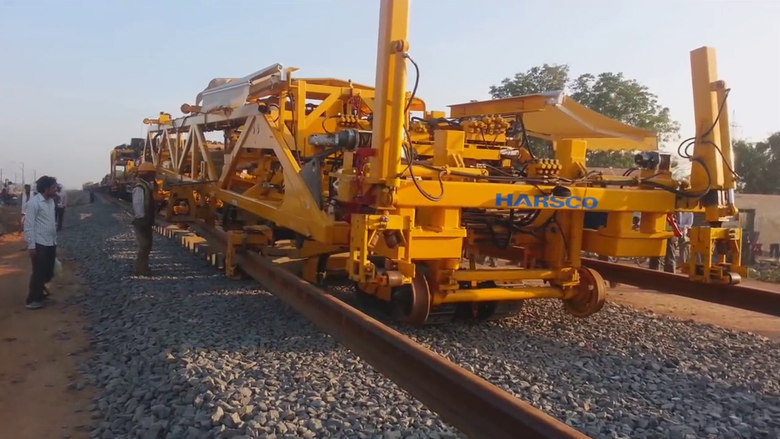Building a world-class system
The project has not only been a landmark for the Indian Railways, it has also ushered in a quantum leap in technology for the traditionally labor-intensive railways sector.
“With 7,000 km of world-class freight tracks to be built within a tight budget and schedule, we needed the latest equipment, modern construction techniques, and the best expertise from all over the world,” said Mr. Ravindra Kumar Jain, MD of the Dedicated Freight Corridor Corporation of India Limited (DFCCIL). “This, along with the necessary transfer of technology would enable us to move towards an Atmanirbhar Bharat,” he added, citing India’s policy of forging a competitive and self-reliant economy. DFCCIL is a corporate entity created by the Government of India to execute this mammoth task.
“The project was the first major expansion of the Indian Railways, marking a bold new chapter for the railways sector,” said Atul Agarwal, the World Bank’s Senior Transport Specialist. “It creates a new model for the railways and brings in the flexibility to introduce innovations.”
Not surprisingly, the initiative has seen many firsts. As the Indian Railways’ first turnkey project, DFCCIL brought in teams of international experts to help with design, execution and procurement.
Old methods were replaced with modern ones. Track laying was fully automated and towering yellow gantries placed each quarter km-long rail with precision. What’s more, the work was completed five times faster, and with a three times smaller workforce. Overhead wiring, signaling and telecommunications works were also mechanized, and drones were deployed to monitor construction.
For the first time, operations will no longer be controlled by station masters along the route. Instead, signaling along the entire length of the EDFC will be managed by a state-of-the-art Operations Control Center at Prayagraj, one of the world’s largest such centers.
Furthermore, in a major ‘Make in India’ enterprise, powerful new locomotives that can pull the 6,000 tonne freight trains at 75-100 km/hour are now being manufactured in Madhepura, Bihar, in collaboration with the French company Alstom.
The initiative has also opened new vistas for Indian construction companies. Their exposure to new technology and investment in state-of-the-art machinery has equipped them to take on further projects and expand their operations overseas.
“Mechanized methods in both track laying and overhead wiring have increased productivity and significantly reduced safety risks that are typical of conventional methods,” said Rajeev Jyoti, Chief Executive of Larsen & Toubro’s Railway Business. “Moreover, the project has adopted international contracting documentation and provides a fair balance of risk between the client and the contractor.”


